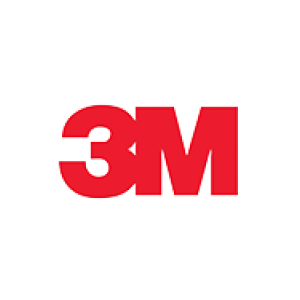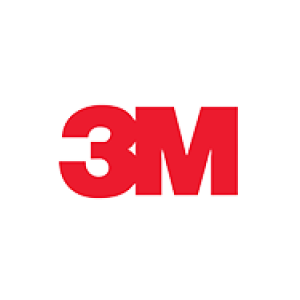Features
When faced with blending or finishing tricky areas such as internal right angles, choose the Standard Abrasives Type 27 Unitized Wheel - 700 Series for easier access and excellent results. This medium to hard density wheel is engineered with increased edge durability and provides a high degree of stock removal while maintaining a bright finish, even on hard metals such as titanium.
Medium to Hard Density Wheel Imparts a Fine Finish to Edges and Contoured Parts
Our Standard Abrasives™ Type 27 Unitized Wheel - 700 Series has a medium to hard density compared to other wheels in our Standard Abrasives™ Unitized Wheels line, and is a great choice when you need to produce both an aggressive cut and fine finish. Use it to finish edges and internal angles when working with titanium or composites as well as stainless steel and steel alloys.
Type 27 Fits 4-1/2˝ Right Angle Grinder
A 4-1/2˝ Type 27 Wheel (sometimes called a Type 27 Disc) is designed to fit a right angle grinder with a wheel guard, typically used for fiber discs, flap discs, and grinding wheels. Type 27 Wheels have a depressed center to allow grinding at any angle without damaging the surrounding surface with the attachment nut, and are particularly useful for working on internal angles. These unitized wheels are used in conjunction with, and sometimes in lieu of, a coated abrasive resin fiber disc or flap disc. Standard center hole and quick change unitized wheels are also available in a range of sizes (sold separately).
Non-Woven Unitized Construction Offers a Step Up in Density and Durability for Stubborn Burrs and Edgework
Standard Abrasives™ Unitized Wheels are a great match for tough deburring, cleaning, blending and finishing applications. They come in a broad range of densities and grades to suit different metals, the degree of aggressiveness required, shape of the part and desired finish. Although used for some of the same tasks as Standard Abrasives™ Buff and Blend products, they are designed with a far stronger and denser construction to support more aggressive applications and accomplish material removal more rapidly. Even though unitized wheels are much stiffer products, the non-woven nylon fibers of the wheel maintain the advantage of responding to surface irregularities while preserving the geometry of the piece, and produce a consistent finish.
Unitized wheels are created by starting with layers of open web material that combines non-woven fiber strands and abrasive mineral with a tough resin bond. These layers of web are then cured and compressed together. By fusing layers of open web, the abrasive gains more toughness and durability, so it can withstand repeated wear.
Ultimately, the wheel's durability is what makes it such a good match for edges. The wheel is tough enough to complete high-pressure edgework without tearing or otherwise disintegrating. Regardless of the diameter or thickness of the wheel, it maintains its structural integrity to remain a stiff and long-lasting abrasive even under high pressure. Additionally, as the layers wear, the wheel can be dressed to maintain its shape.
Load-Resistance Boosts Life and Performance
Standard Abrasives™ Unitized Wheels are load-resistant to keep you cutting with fresh mineral. The gaps in the open web allow unwanted swarf to escape. Consequently, less debris clogs the abrasive, so the mineral can stay fresh, keep cutting sharp and deliver a consistent cut over the life of the product. As the fibers break down and fresh mineral is exposed, it reduces the likelihood of dull or blunt mineral smearing the surface, contributing to cleaner surfaces and less re-work. Furthermore, manual fatigue that may result from applying heavy pressure to a dull abrasive is reduced.
The Many Benefits of Standard Abrasives™ Non-Woven Products
Standard Abrasives™ Unitized Wheels offer many benefits for heavy-duty jobs. For all the aforementioned reasons, Standard Abrasives™ Unitized Wheels invigorate deburring, cleaning, blending and finishing applications by helping operators reduce finishing steps, minimize costs and achieve greater throughput.








